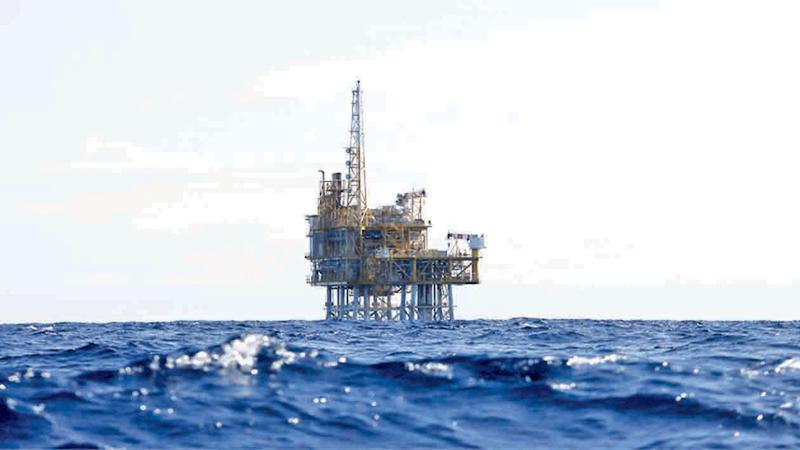
Studies indicate the Mannar basin could yield high quality oil and natural gas that can easily fill a substantial portion of the country’s energy needs for the next 40 to 60 years, Director- Benefits, Petroleum Resources Development Secretariat Eng. D. T. K. Preeni Withanage says.
The engineer was commending the government’s move to recommence oil excavation in the island that was halted around 2015.
This comes as the government voiced its plans to start construction of the largest petroleum refinery in the country next year. Shedding light on this move during an official event on Monday, Transport Management, Power and Energy Minister Mahinda Amaraweera drew attention to the fact that only 30 per cent of the country’s fuel requirement was refined within the country.
The minister pointed out that by importing refined fuel the country is losing out. Sri Lanka already houses refineries in Sapugaskanda and Hambantota, but the incumbent government believes that there needs to be another and much larger refinery.
 Minister Amaraweera then drew attention to the natural gas deposits in Mannar. “Therefore, the government has decided to commence drilling in the Mannar natural gas field,” he declared.
Minister Amaraweera then drew attention to the natural gas deposits in Mannar. “Therefore, the government has decided to commence drilling in the Mannar natural gas field,” he declared.
Sri Lanka has a decades-long history of oil and gas excavation. According to petroleum geologist Chaminda Kularathna the explorations were first carried out in the 1960s to 1984. It is believed that war fought against the LTTE resulted in the halting of oil excavations. Later the efforts were renewed from 2001 to 2005.
“This was with the acquisition of high quality 2D seismic data and enacting of the Petroleum Resources Act No: 26 of 2003,” Kularathna said. The Act was introduced to regulate the exploration and recovery of petroleum resources.
The geologist explained that the then government launched the first international licensing round (a bidding process) in 2007. The country’s first Petroleum Resources Agreement was signed between Sri Lanka and Cairn Lanka (Pvt) Ltd in July 2008 for exploration of a 3000sqkm block identified as M2 in the Mannar basin.
The Mannar basin is divided in to nine exploration blocks (M1 to M9), and five wells were dug in this basin where gas was discovered in 2011 in two of these wells - Dorado and Barracuda. The two other basins where gas is excavated are Cauvery Basin with five exploration blocks and six exploration wells in which gas was found in one - Pesalai, and the Lanka Basin.
“Initial studies indicate that the marginal Dorado reservoir (in Mannar basin) would provide natural gas for a 700MW power requirement with approximately 50 per cent Plant Factor at a daily rate of 70MMscf platue for nine years,” Kularathna explained.
However, it is understood that more studies are needed with well testing to verify the potential value of natural gas identified in the wells.
Meanwhile, after seven years of gas exploration, spending a sum of USD 240 million, and following the discovery of two gas wells Cairn Lanka (Pvt) Ltd abandoned the project.
Eng. Withanage explained that there are commendable ongoing projects. In 2016 the government entered into a joint exploration study with TOTAL of France for two ultra-deep water blocks in Lanka basin off the Eastern coast. In August 2019 the agreement was amended and restated with Equinor of Norway (who joined as an additional joint study partner). Both TOTAL and Equinor are currently interpreting data from the two blocks.
“In addition, the much needed cabinet approvals were taken to develop natural gas discoveries and additional prospects in M2 block in Mannar,” Eng. Withanage said adding that explorations were done in M1 and C1 (of Cauvery basin) to acquire more petroleum data from the three basins on multi-client basis. These data are used to determine the presence of natural gas in the wells.
Then, in 2018 the government entered an umbrella multi-client data acquisition, processing, marketing and licensing agreement with a subsidiary of Schlumberger company that conducted the largest 2D seismic operations in the country.
“Three bids received for the appraisal and development of existing gas discoveries and additional prospects in block M2, in July 2019, were forwarded to the Cabinet appointed negotiation committee for negotiations,” Eng. Withanage said, as she pointed out another ongoing project.
UK’s BelGeospace company is awaiting pre-commitments for the gravity, gravity radiometry and magnetic data acquisition, processing, marketing and licensing agreement signed in August 2019 covering offshore Mannar and Cauvery basins.
“But, oil and gas by nature are long term project commitments that calls for a reasonable time frame in multiples of years to acquire, process and interpret data to identify oil and gas prospects,” Eng. Withanage pointed out adding that the biggest challenge for Sri Lanka is to commercialise the deep water resources as the country has to depend totally on foreign direct investment to appraise and develop these discoveries.
The future of oil and gas exploration in the country looks promising, and will ease the high costs it spends on fuel. In 2018 the government spent USD4.15 billion to import fuel.
